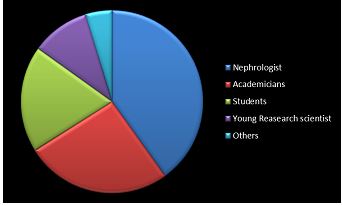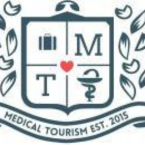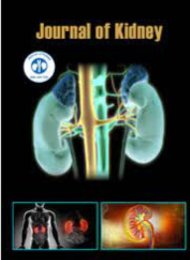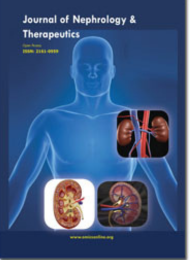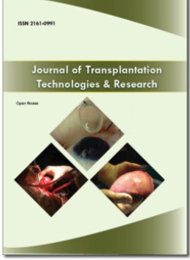Theme: Exploring the advanced technologies and new therapeutics in kidney transplantation
Kidney Care 2024
Kidney Care 2024 extends its invitation for you to attend International conference on 4th International conference on Kidney Failure & Renal Care which is scheduled to be organized on August 19-20, 2024 London, UK. The Kidney Care 2024 mainly focuses on Novel educational approaches to enhance learning and interest in Nephrology & Urology. The detailed information about the systemic conditions that affect the kidneys and systemic problems that occur because of kidney problems. The conference will focus around the theme “Exploring the advanced technologies and new therapeutics in kidney transplantation”.
Kidney Care 2024 intends to give various and flow training that will keep medicinal experts side by side of the issues influencing the avoidance, finding and treatment of topic related to Nephrology.
This conference also covers topics on Nephrology, Urology, Kidney, Renal Nutrition & Metabolism, High Blood Pressure, Robotic Nephrectomy, Diabetic Nephropathy, Clinical Nephrology, Pediatric Urology
Why to attend?
The aim of this conference is to make a platform where the ideas can be shared from the Nephrologist and Urologist. This year we have gathered nephrology experts from around the continent who were specially chosen to highlight some of the most exciting areas in nephrology and urology over the past few years. The program was planned to meet the specific needs of the diverse registrants and stakeholders interested in Nephrology and Urology field. This year we really want to engage the audience in the conversation of nephrology & urology with panel discussions, workshops, in addition to lectures with Q+A. We aim to arrange plenty of opportunities to interact and network with each other
- Nephrologists
- Urologists
- Renal Experts
- Pediatric Nephrologist
- Kidney coordinators
- Renal Transplantation surgeons
- Nephrology Associations and Societies
- Business Entrepreneurs
- Training Institutes
- Software developing companies
- Manufacturing Medical Devices Companies
- Data Management Companies
- Nephrology Nurses
- Gynecologist
- Research scholars
- Budding scientist
Track - 1 : Nephrology
Nephrology is a branch of medicine that focuses on the diagnosis and treatment of renal illnesses. It examines the health and diseases of the kidneys. At the level of the T12 to L3 vertebral bodies, the kidneys are paired retroperitoneal organs. The fibrous capsule of the kidney is surrounded by pararenal fat. The renal sinus, which contains the renal pelvis, calyces, renal arteries, nerves, lymphatics, and perirenal fat, is separated from the renal parenchyma, which includes the renal cortex and medulla. Cortex and medulla are the two layers of the renal parenchyma. The renal medulla consists of 10–14 renal pyramids that are separated from one another by an extension of the renal cortex known as renal cortex, which remains just below the renal capsule.
Track – 2 : Acute Kidney Injury
An unanticipated occurrence of kidney failure or kidney damage that happens within a few hours or days is known as an acute kidney injury (AKI). AKI makes it difficult for your kidneys to maintain the proper balance of fluid in your body and leads to a buildup of waste products in your blood. AKI may also cause discomfort to the heart, lungs, and brain. Those who are hospitalised, in critical care units, and especially elderly persons are more likely to experience acute renal injury.
Track – 3 : Dialysis
The process of dialysis involves solute diffusion and liquid ultrafiltration over a semi-permeable layer. A characteristic of compounds in water is diffusion. In water, chemicals frequently transition from a region of high fixation to one of low fixation. Hemodialysis and peritoneal dialysis, the two main types of dialysis, remove wastes and water from the blood in different ways. Hemodialysis purges waste by passing blood through a dialyzer, an external filter with a semipermeable membrane that circulates blood outside the body. Generally speaking, there are five different types of dialysis, of which three are primary and two are secondary: Hemodialysis and peritoneal dialysis, hemofiltration are primary types of dialysis and were as hemodiafiltration, and intestinal dialysis is minor type of dialysis.
Track – 4 : Nephrology Nursing
Nephrology Nursing is a deliberate effort to broaden nursing knowledge through the systematic discovery of new facts. Improvement in patient care is among them. Decreased cost of required renal treatment, Accountability and litigation protection, adding to the body of nursing knowledge already available improvement of nursing as a profession. Kidney care Nursing is the branch of nursing that places the greatest emphasis on providing the sickest or most unstable chronic renal patients with the best care possible. A functional (as opposed to academic) sub-order of the study of infection transmission, contamination revolution and nursing consideration focuses on preventing nosocomial or health awareness associated disease. Babies that require more intensive medical care are typically allowed into a special area of the clinic called the Neonatal Unit.
Track – 5 : Urology / Urinary Tract Infections
When germs enter the urinary tract through the urethra and begin to proliferate in the bladder, a urinary tract infection is undoubtedly the result. Even while the urinary system is built to keep off such tiny invaders, these safeguards can go wrong. When that happens, it's possible for bacteria to establish a foothold and develop into a full-blown urinary tract contamination. UTIs (urinary tract infections) are especially common in older persons, newborns, and women.
Track – 6 : Renal Nutrition and Metabolism
The unique nutritional requirements of kidney patients are addressed by renal nutrition. Renal nutrition plays a role in ensuring that renal patients consume the correct foods to maximise the effectiveness of dialysis and enhance health. Dieticians working in dialysis clinics assist patients with meal planning. The general consensus is to consume more foods high in protein and fewer meals high in sodium, potassium, and phosphorus. Patients are also given recommendations for healthy fluid intake.
Track – 7 : Kidney and Bladder Cancer
A field of medicine that studies normal kidney function, renal disorders, and how to treat them. Furthermore, renal replacement medications are used. Acute renal failure: Kidneys' inability to properly filter waste from the blood. Some of the symptoms include decreased urine flow, edoema brought on by urinary retention, nausea, and shortness of breath. Acute tubular necrosis was the demise of the renal tubules' tubular epithelial lining. Low blood pressure and the use of nephrotoxic medications are the usual causes. Diabetic insipidus: A condition where the kidneys stop the body from excreting water. Hypocalcemia and Many Additional Nephrology-Related Case Reports. Every nephrologist has received considerable training in general internal medicine, and many of them treat their patients for conditions besides renal disease.
Track – 8 : Diabetic Nephropathy
The diabetic kidney disease, also known as diabetic nephropathy, is a renal condition that often affects some people with diabetes mellitus. The kidney's glomeruli and filters are harmed in diabetic nephropathy. This disorder causes the kidneys to leak an excessive amount of blood protein into the urine. Blood glucose or blood sugar levels are significantly high in people with diabetes. The kidneys may be harmed if this continues for a long time. Your kidneys' job is to purify your blood. If they are injured, waste and fluids build up in the blood without being eliminated by the body. Diabetic nephropathy is the term used when diabetes damages the kidney. Usually, it begins long before you start to have symptoms. Its initial symptom is modest.
Track – 9 : Kidney Transplantation
The transplanting of a kidney into a patient with end-stage kidney disease is known as kidney transplantation or renal transplantation. Depending on where the donor organ comes from, kidney transplantation is often referred to as cadaveric or living donor transplantation. Depending on whether a genetic connection exists between the kidney donor and kidney recipient, living kidney donors are previously classified as either non-related living transplants or living related shifts. Exchanges and chains are a creative technique to increase the pool of living donors.
Track – 10 : Pediatric Nephrology
The diagnosis and treatment of newborns with both chronic and acute kidney diseases are defined by the study of pediatric nephrology. Children with hypertension, hematuria, proteinuria, renal tubular acidosis, nephrolithiasis, glomerulonephritis, and kidney injury are evaluated and treated by the paediatric nephrology section. Additionally, it covers all aspects of care for young children with end-stage kidney disease, including hemodialysis, peritoneal dialysis, and paediatric kidney transplantation.
Track – 11 : Geriatric Nephrology
The objectives of this study were to determine the clinical, biochemical, and radiographic parameters that were most effective at identifying osteopenia CAPD patients, as well as to evaluate the clinical utility of total and local bone densitometry in a large continuous ambulatory peritoneal dialysis (CAPD) population. In this thorough examination, we look at the many forms of acute nephritis. They are nephrotic syndrome: Urine is formed in the inflammatory gaps between the renal tracks. Pyelonephritis: The glomeruli become inflamed as a result of this kind of acute nephritis. Interstitial Nephritis: This type is commonly triggered by an allergic reaction to a drug or antibiotic.
Track – 12 : Clinical Nephrology
It addresses the diagnosis and management of renal syndromes, such as primary and secondary hypertension and electrolyte imbalances, as well as the care of patients requiring renal replacement therapy, such as those undergoing dialysis or receiving a kidney transplant. Many illnesses that affect the kidneys frequently spread throughout the body and are not just restricted to the organ itself, necessitating specialised care. Examples include acquired diseases like lupus, immune system disorders like systemic vasculitides, and innate or genetic conditions like polycystic kidney disease. Following a urinalysis, patients are described to clinical nephrologists for a variety of conditions, including hypertension, acute kidney failure, hematuria, proteinuria, chronic renal disorders, kidney stones, and abnormalities of the acid-base or electrolyte balance.
Track – 13 : Drugs for Kidney Diseases
Despite the fact that medicine cannot cure chronic kidney disease, it is frequently employed to treat its symptoms and its side effects and to prevent future kidney damage. Most individuals with chronic renal disease experience issues with high blood pressure at some point during their illness. Blood pressure medications assist in keeping it within a certain range and halting further renal damage. Before you find a medication that effectively lowers your blood pressure without causing irritating side effects, you might need to test a few different blood pressure medications. To achieve the optimum results, the majority of patients must take a combination of medications. Three to five days after starting or switching medications, your doctor could perform blood testing.
Track – 14 : Renal Pathology & Immunology
Pathogenic immune responses to renal autoantigens or local signs of systemic autoimmunity frequently attack the kidneys. Renal pathologists employ specialised tests and electron microscopes to identify the cells associated with kidney disorders in order to make a diagnosis. In order to analyse renal problems, examine expectations, determine a precise restorative strategy, and monitor disease change in both local and allograft transplant kidneys, kidney biopsies are necessary. A combination of light, immunofluorescence, and electron microscopy is used to significantly abuse renal biopsy instances. Each renal biopsy centre is often divided into three sections because each microscope requires different fixation and preparation techniques.
Track – 15 : The End Stage Renal Diseases & Chronic Kidney Diseases
Chronic kidney diseases (CKD), also known as end-stage renal disease (ESRD), are a group of ailments that harm your kidneys and reduce their capacity to maintain you sanitary through aberrant function. Wastes can build up to high amounts in your blood and make you feel sick if renal disease worsens. You could experience problems like anaemia, hypertension, brittle bones, nerve damage, and poor nutritional health. Kidney illness also makes you more likely to develop coronary disease and heart issues. These problems could develop gradually over a protracted period of time. Diabetic kidney disease is mostly caused by excessive blood pressure and diabetes.
As indicated by the current measurements the eighteenth driving passing reason for Turkey is kidney sicknesses. The profound quality rate in Turkey for kidney illnesses is 5.47 on the planet; consistently no less than 2.3 million individuals may have passed on as a result of kidney disappointment. In 2030 number of individuals are experiencing dialyses or kidney transplantation set to dramatically increase to more than 5 million. In Istanbul each 1 of every 3 grown-ups is at present in danger for creating kidney ailments. The ninth driving reason for passing’s in Turkey is kidney infection. In Istanbul 6 lakh passing’s are because of kidney illnesses. It is being expressed that all through Turkey in excess of 17,105 kidney transplantations occurred in 2014 alone. In 2015, 11,570 originated from expired givers and 5,535 originated from living contributors. Consistently 12 individuals pass on while sitting tight for an existence sparing kidney transplant. For like clockwork an individual is added to the renal transplant list. In 2014, 4,270 patients kicked the bucket because of expanding the slack time for a kidney transplant. Another, 3,617 individuals turned out to be excessively wiped out, making it impossible to take conveyance of kidney transplant. Therapeutic Expenditures for singular patient every year with kidney infection increment from $15,000 in arrange 3 to $28,000 in organize 4 to more than $ 70,000 in arrange 5. Consistently, Medicare spent about $ 28.6 billion to treat individuals with kidney disappointment. National kidney Foundation has given more than $100 million to inquire about. Every year US spent $ 41 billion or 17% of their Medicare spending plan on individuals with kidney illnesses.
Nephrology extent of training has experienced significant changes in the previous decade. This advancement is to a great extent due to:
The general predominance of CKD in the overall public is around 14%.
Hypertension and diabetes is the fundamental driver of CKD. Half of people with CKD likewise have diabetes as well as self-revealed cardiovascular illness (CVD).
- In excess of 661,000 Americans have kidney disappointment. Of these, 468,000 people are on dialysis, and around 193,000 live with a working kidney transplant.
- Kidney sickness frequently has no manifestations in its beginning periods and can go undetected until the point when it is extremely best in class. (Thus, kidney illness is regularly alluded to as a "noiseless malady.")
- The balanced occurrence rate of ESRD in the Assembled States climbed forcefully in the 1990s, levelled off in the mid 2000's, and has declined marginally since its crest in 2006.
- Contrasted with Caucasians, ESRD predominance is around 3.7 times more prominent in African Americans, 1.4 times more noteworthy in Local Americans, and 1.5 times more prominent in Asian Americans.
Members Associated with Nephrology Research
- Nephrologists
- Paediatric Nephrology
- Fellows or postdoctoral students
- Nephrology Academicians
- Students pursuing an MD or PhD
- Emeritus
- Young research scientist
-
How to submit an abstract/article?
Abstract submissions are welcoming you all to place up abstracts on KIDNEY CARE 2024
Please see beneath for submission recommendations.
Full abstracts frequent for registered attendees will be published inside the open-get right of entry to conference guide mag and conference memorabilia.
Submit your abstracts through the internet ABSTRACT SUBMISSION
Abstracts need to be submitted in English and should be amongst 250 and three hundred phrases, along a 60-70 phrase presenter biography.
Submissions are welcome on all topics associated with Kidney Care
The offering writer ought to provide the following records: Presenters complete name, association facts: branch, group/clinic, U. S. A., phone variety, e mail address, and photograph
For co-authors, the subsequent info is required: complete names and association info which includes the call of the branch, institute/employer business enterprise, and United States of America ought to be included
All abstracts might be reviewed with the aid of a compare board authorized by manner of the Kidney Care convention assessment board. The Committee's desire is final.
All ordinary summary presenters may be required to sign in and e-book a slot to wait the convention.
Please examine that your affiliation and summary pick out out inside the very last software software and inside the mag will seem exactly as you put up them. Please, consequently, have a look at the pointers provided as to the specified format and the letter of reputation does not propose any adventure subsidy or scholarship.
Next steps
An email affirmation might be dispatched to you after the hit popularity of the summary thru organizing committee contributors. If the abstract is normal, presenters have to verify the presenter(s) and book a slot to confirm their presence on the conference. Failure to attain this could moreover bring about your paper being excluded from the Kidney Care convention utility
How to complete registration?
To whole registration, go to the ONLINE REGISTRATION PAGE in which the subsequent registration classes are available
Entrants from academia/educational backgrounds need to check in their get right of entry to underneath the educational beauty
Registration options available in this category Poster presentation includes your registration and multiple night time’s accommodations Package B (consists of your registration and three night time’s accommodations Online seminar
The businessman has to sign up for up his participation inside the Business magnificence
Registration alternatives available on this magnificence Package A (includes your registration and a couple of night time time’s lodging) consists of your registration and 3 night’s accommodations Advertising who're regardless of the truth that pursuing their research will sign in their participation in the student class.
(Registration alternatives available in this magnificence Poster presentation encompass registration and a couple of night time’s accommodations).
Apart from any magnificence stated above, please Email:jasminehelena25@gmail.com for GROUP REGISTRATION, EXTRA NIGHT ACCOMMODATION, ADVANCE PAYMENT OF TOKEN, MORE THAN ONE PRESENTATION, and lots of others. These options are to be had upon unique request and talk with management.
Conference Highlights
- Nephrology
- Acute Kidney Injury
- Dialysis
- Nephrology Nursing
- Urology / Urinary Tract Infections
- Renal Nutrition and Metabolism
- Kidney and Bladder Cancer
- Diabetic Nephropathy
- Kidney Transplantation
- Pediatric Nephrology
- Geriatric Nephrology
- Clinical Nephrology
- Drugs for Kidney Diseases
- Renal Pathology & Immunology
- The End Stage Renal Diseases & Chronic Kidney Diseases
To share your views and research, please click here to register for the Conference.
To Collaborate Scientific Professionals around the World
| Conference Date | August 19-20, 2024 | ||
| Sponsors & Exhibitors |
|
||
| Speaker Opportunity Closed | |||
| Poster Opportunity Closed | Click Here to View | ||
Useful Links
Special Issues
All accepted abstracts will be published in respective Our International Journals.
Abstracts will be provided with Digital Object Identifier by













